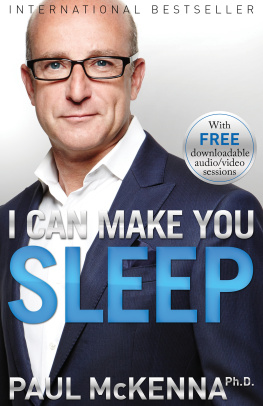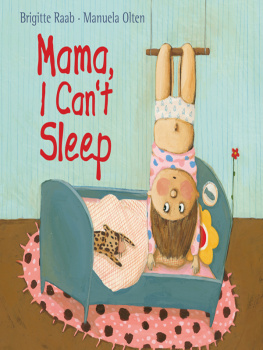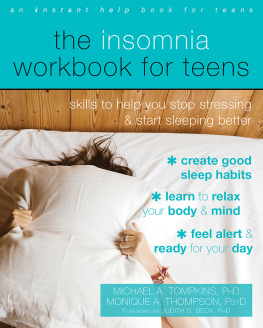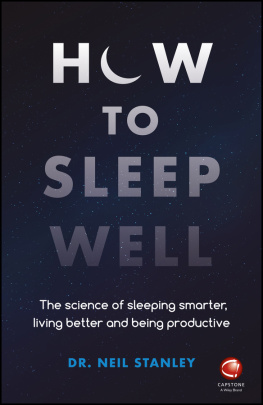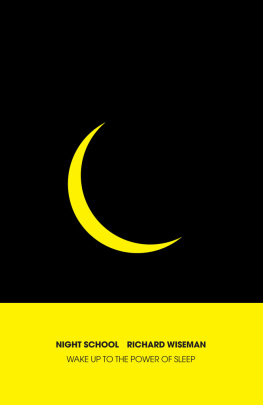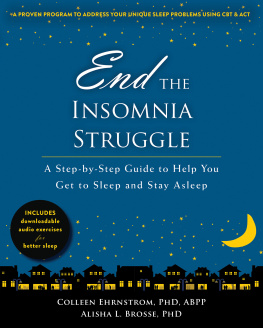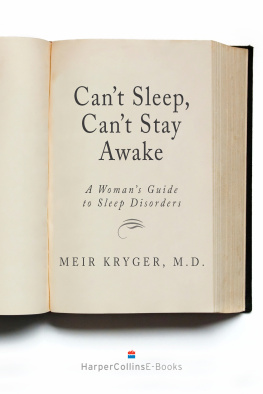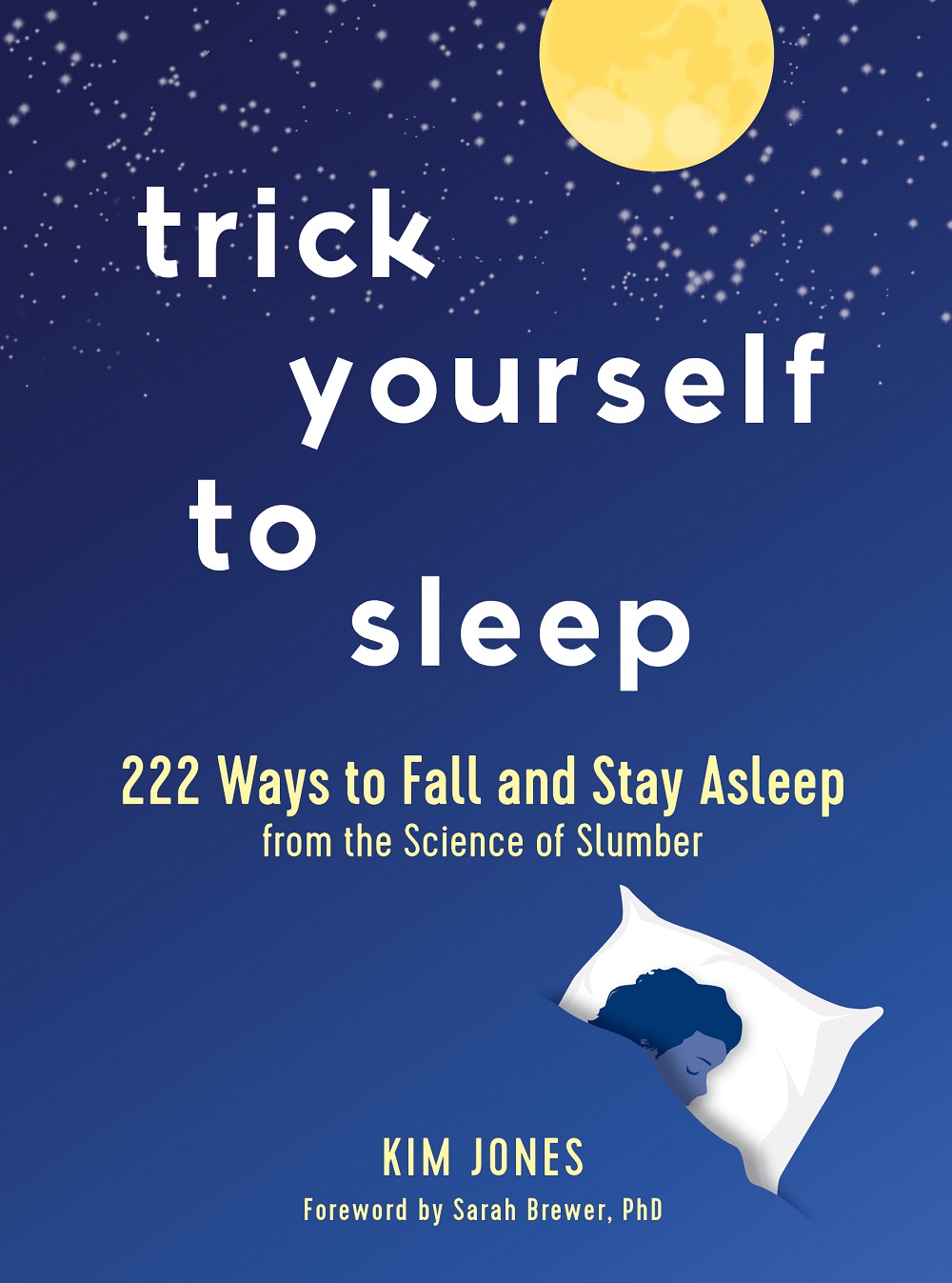
About the Author
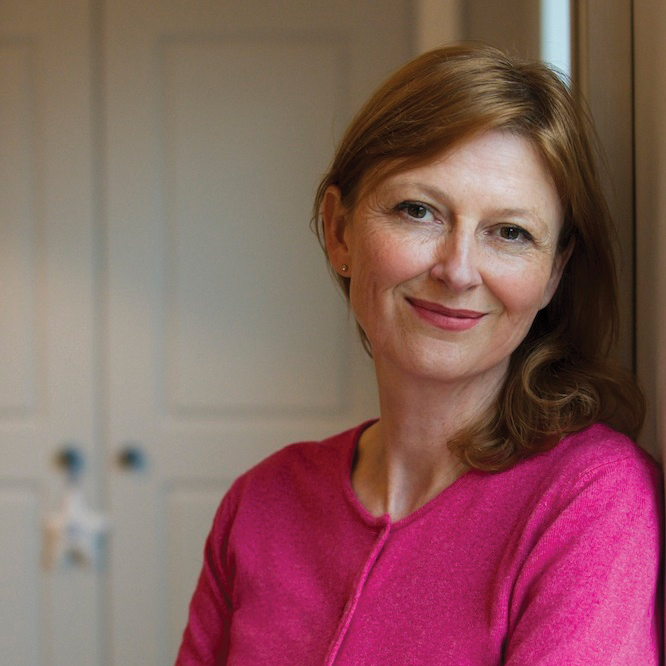
KIM JONES is a freelance journalist specializing in health and well-being. She is a member of the Guild of Health Writers and writes for various national womens magazines and newspapers in the UK, including the Daily Mirror, the Sunday ExpressMagazine, Womans Weekly, Tesco Magazine, and Woman and Home. Kim lives in Cardiff with her partner, their two sons, a cat, and cocker spaniel.

Acknowledgments
Thank you to Alistair, for supporting me and always believing in me; to my boys Steffan and Lucas and my family for encouraging me in this endeavor; and to my friends for cheering me on and confirming my belief that theres a need for as much easily accessible help as possible when it comes to getting a good nights sleep.
Thanks to my agent, Jennifer Christie, from Graham Maw Christie for her much-appreciated enthusiasm, humor, expert insight, and hard work (see you on the tennis court some time!); to Anna Steadman for commissioning the book and being a pleasure to work with; and to Jillian Young, Jillian Stewart, the rights team, and everyone else at Piatkus and Little, Brown, for their positivity and for championing the book. Thank you to everyone at The Experiment for the North American edition. Thank you, too, to Dr. Sarah Brewer and Lisa Artis for their kind words, and to Ruth Craddock for her charming illustrations.
Foreword
Dr. Sarah Brewer
Everyone experiences sleep problems at some time during their life. Often the problems are short-lived, caused by fleeting issues such as jet lag or worry about a job interview or driving test. But sleeplessness thats a result of ongoing problems such as work stress, for instance, may last for weeks and, if not tackled, can become a long-term condition that interferes with your quality of life.
Lack of sleep is also bad for your health. Research consistently shows that people who sleep soundly for seven to eight hours at a time have the lowest risk of high blood pressure, heart disease, depression, and obesity, and also mount better immune responses against infection.
Adequate sleep may even help you live longer, if a study that followed twenty-one thousand sets of twins for over twenty-two years is to be believed. According to the results, those who achieved the magic seven to eight hours sleep per night lived longer than those who habitually slept for shorter or longer periods.
If sleep eludes you, sleeping pills are not the answer. Instead, follow the advice in this fabulous book and tackle your sleep problems naturally using diet, lifestyle, cognitive, mindful, and other alternative approaches. Youll be glad to know that doesnt include the proverbial counting of sheep far too boring an exercise to distract you from your genuine worries.
I can guarantee you will find numerous sleep-inducing suggestions youve never encountered before, at least one of which is bound to work for you.
DR. SARAH BREWER,
MSc (NutrMed), MA (Cantab), MB, BChir,
RNutr, MBANT, CNHC
DrSarahBrewer.com
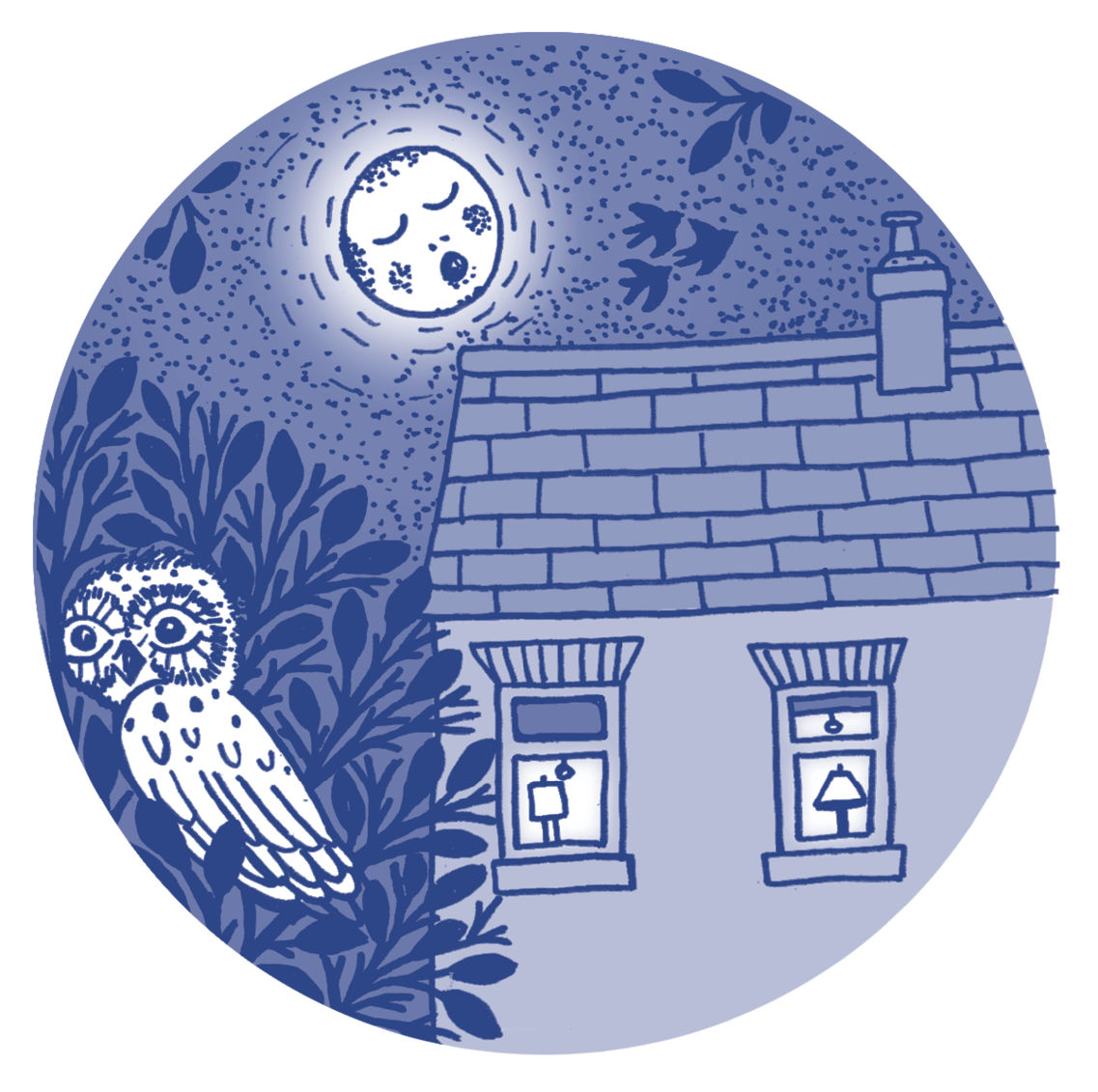
Introduction
Lights out... and theres almost nothing nicer after a long, demanding day than nestling down under the covers in a comfy bed and drifting off to dreamland.
If only it were that easy, right?
While for some lucky people, sleep comes pretty soon after their heads hit the pillow, for others, going to bed then struggling to nod off for hours on end can become a nightmare. Especially if its happening night after night.
If youre reading this book, youre probably having trouble sleeping. I feel for you. Theres nothing nice about lying there, thoughts and worries flooding your mind, or feeling wide awake, wired and irritable, tossing and turning and simply unable to slip into slumber.
But while in the dark morning hours it can often feel like youre the only person in the world whos not fast asleep, I can tell you that youre certainly not alone. Research has found that in todays fast-paced, high-alert, nonstop culture almost a third of us get poor sleep most nights. Nearly three-quarters of us snooze less than the optimum seven or eight hours, and 12 percent get less than five. And lack of sleep can become a wearing long-term predicament if its not addressed. Figures show that 35 percent of us have suffered from sleep problems for more than five years, and a fifth for more than ten. Thats a lot of long, sleepless nights.
Insomnia can wreak havoc on our daytimes, too, leaving us feeling exhausted, irritable, and unwell. Whats more, it has been linked to a whole host of long-term chronic conditions including type 2 diabetes, heart disease, a propensity to strokes, high blood pressure, obesity, and depression.
Yet its not all doom and gloom. There are plenty of positive things you can do to improve your sleep. So Ive trawled through the science of slumber to bring you a huge selection of assorted tricks and tips to put your body and mind in the best state possible for drifting off peacefully when you head to bed. You may be surprised to learn that everything from having a purpose in life to warming your feet, from what you eat to how you breathe, from how much time you spend outdoors to reframing your thoughts and mindset, can all help get you to sleep.
The book is packed with plenty of everyday tricks to try, as well as some weird and wonderful tips garnered from expert research that you can take inspiration from. What works for some might not be successful for others, so be prepared to try them out and experiment!
Sleeping well can help change your life for the better. Youll feel more energetic, optimistic, happier, and healthier when youve ditched the bad old habits that for too long have stopped you from nodding off. Remember, everyone can sleep. Its just a matter of finding out what works best for you to lure you into a long, peaceful slumber. The tips in this book will help you fall in love with falling asleep again with little effort, no stress, and a free mind.
I hope you find the magic to help you enjoy peaceful, sleepful nights thanks to some of these sleep tricks.
Sweet dreams.
One
Before-Bed Wind-Down Tips

You cant expect your body or your mind to switch off and transition from full-on, fast, and frantic to fully relaxed and fast asleep in seconds. You need to give yourself a window in the evening in which to gradually unwind and ease yourself into peaceful tranquility. These stratagems will help steer you from tense and edgy to calm and composed, so when you lie down youve left the tensions of the day behind you and are already feeling laid back. All of which will make it easier to drift off to dreamland.
Turn off techs blue light
Any type of bright light will hinder the production of the sleep hormone melatonin. But blue light the type thats around us outside during the daytime and that is emitted from devices such as your phone, computer screen, and tablet suppresses production the most. In a recent study published in
Next page

